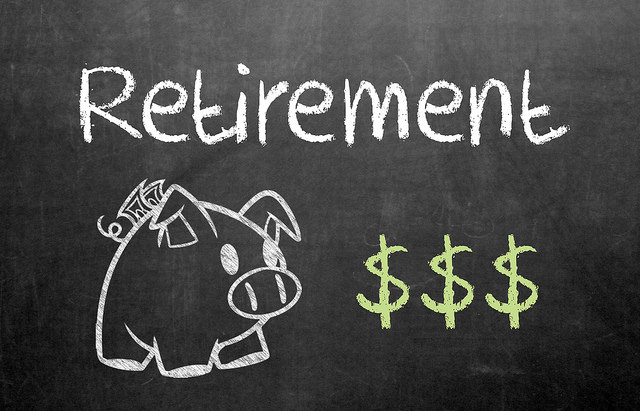
Image source: gotcredit.com.
The 401(k) is a wonderful retirement savings tool. Not only is it common for an employer to offer matching contributions to at least some level, but it's also a way to grow your retirement savings tax free, while also getting a tax break for contributions today. And with the recent advent of the Roth 401(k), you may be able to forgo today's tax savings in order to generate tax-free income in retirement.
But what is your maximum 2016 401(k) deduction? The short answer, is somewhere between $18,000 and $59,000, depending on a number of factors. Let's take a closer look.
Work for someone else? Here's the scoop
The vast majority of people fall in this category, and the maximum 2016 401(k) deduction would be as follows:
- $18,000 for those under age 50, or:
- $24,000 for those 50 and over, which includes $6,000 in extra "catch-up" contributions.
These are the IRS limits for 2016, the same as they were in 2015. However, it's important to consider a few additional things:
- Your employer may have a lower maximum elective deferral limit than the IRS, so check with payroll, human resources, or your manager to confirm the limit at your job.
- Contributions designated as Roth 401(k) contributions are not tax deductible from your 2016 income.
- If you make Roth 401(k) contributions, the benefit is on the backside; distributions in retirement would be tax-free, instead of taxable income.
It's also important to note that these contributions are per person, not per employer or per household. In other words, if you have two jobs with 401(k) plans you contribute to, your combined contributions cannot exceed the IRS limits above. Furthermore, if you're married, your contribution limits and those of your spouse are separate from one another, no matter your tax filing status.
Self-employed? Your deduction may be bigger
If you're self-employed, you (as technically the employer and the employee) make both the elective deferrals which are deductible from your earned income, and the employer contributions, which are deductible expenses.
The short answer here is, it can get a bit complicated, but the max deduction could be as much as the contribution limits of $53,000 for those under 50, or $59,000 for those 50 and above (adds in the $6 grand in "catch-up contributions). However, your maximum contribution (and therefore the maximum deduction you could get) cannot exceed your compensation. The IRS defines your compensation as, "net earnings from self-employment after deducting both one-half of your self-employment tax, and contributions for yourself."
In other words, your maximum deduction would be capped by your net income based on all your business expenses, and the calculation above, not your gross income.
Own an S-corp or similar? There's your deduction, and then there's the business' deduction
If you own a business such as an "S" corp, you'll file separate taxes for yourself, and separate taxes for the business since it's a freestanding legal entity. In other words, you'll make your elective deferrals to your 401(k) just like any other employee of the business, based on the rules of your plan. And unless you have lower limits, you'd be able to contribute (and therefore deduct) up to $18,000 (or $24,000 if you're 50 and above) in 2016.
And then the corporation would be able to deduct its matching contributions to your 401(k) as an expense as part of its corporate tax filing, with the maximum amount it could deduct based on the rules of the plan that determine how much the company can contribute to your plan and that of any other employees.
Take advantage of this deduction
The short answer to the question, "what is my maximum 401(k) deduction?" is, it depends. But it's probably the lower of your maximum contribution limit or your income, depending on your situation based on the things discussed above.
Whether you're employed by someone else, own your own company, or are a self-employed sole proprietor, take full advantage of the 401(k) deduction. Not only will it help you lower your tax bill in 2016 (or in retirement if you make Roth deferrals), but you're also setting yourself up for a better retirement.
Bottom line: Don't skip contributions, and don't skip the tax benefits when you make them.





